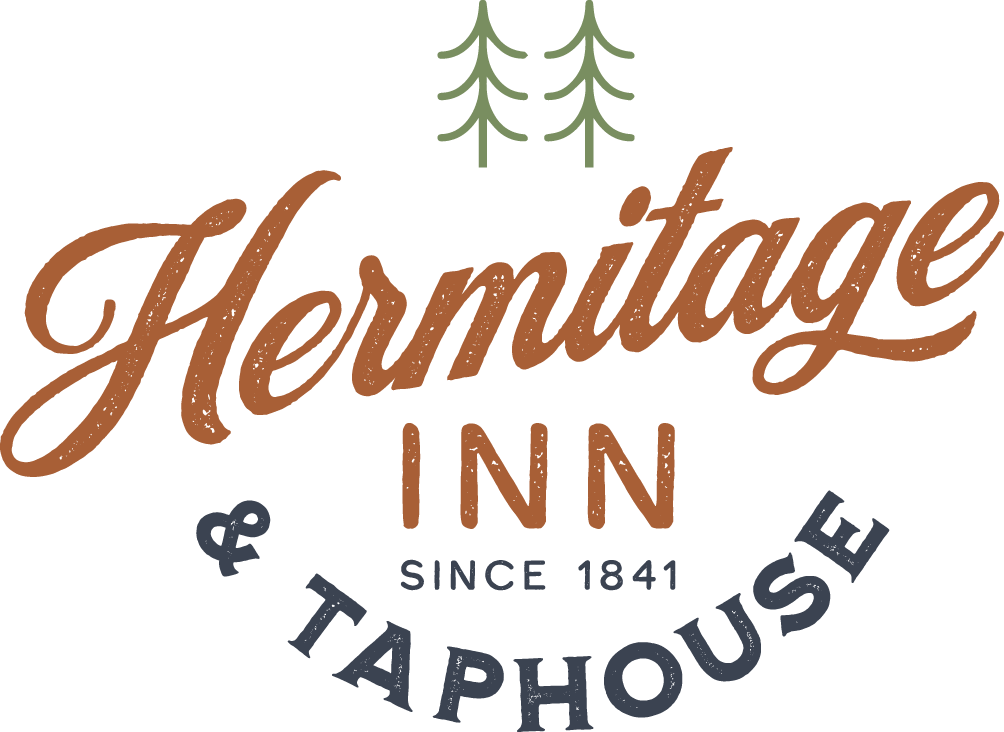 Historic Appeal
Historic Appeal 
The original Hermitage was built in the early 1840s. It is older than the state of West Virginia (1863) and older than Grant County (1866). The building was constructed of bricks dug and fired on the premises with slave labor. The first legal record (1841) described it as a red brick building “with necessary outbuildings”. It has been in continuous use as a hostelry since 1881. The Inn has been an integral part of the community since its first guests arrived by stagecoach from Keyser and Cumberland; and later, when the Inn’s livery met the daily train from Cumberland. It was listed on the National Register of Historic Places in 1986.
Before the Civil War, the Hermitage was the home of Dr. Jacob Kenny Chambers. During the war, it was taken over by officers of the Federal Troops, who occupied Petersburg and were stationed at Fort Mulligan.
In 1881, John and Mary Cunningham converted the private home into the “Cunningham Hotel” and operated it into the 1890s. The hostelry accommodated traveling salesmen, sportsmen, and other visitors to the South Branch Valley. Rooms were not set up for individuals, but rather had almost wall-to-wall beds similar to a hostel in some quarters.
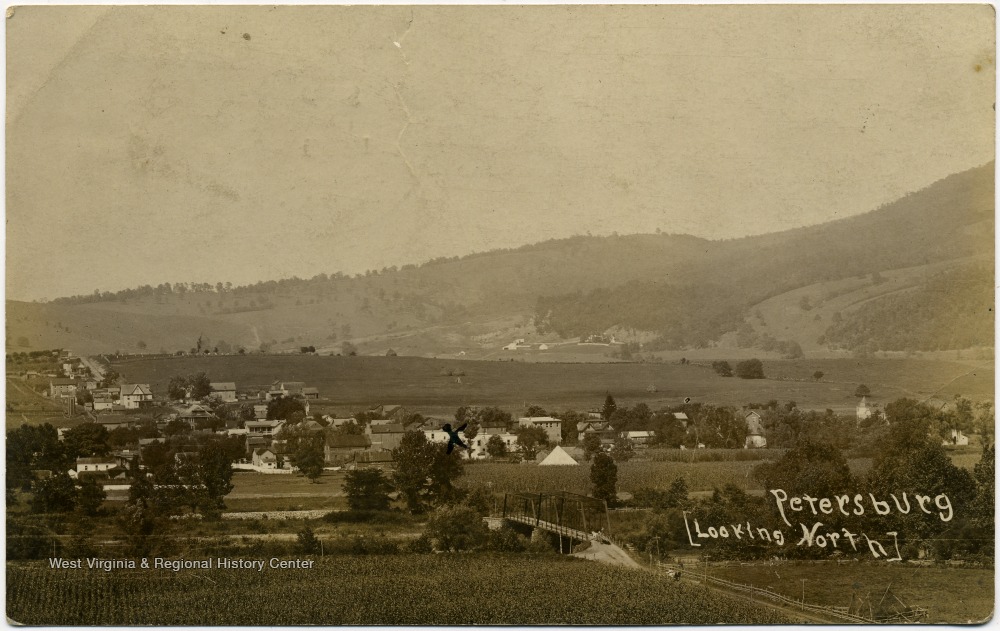
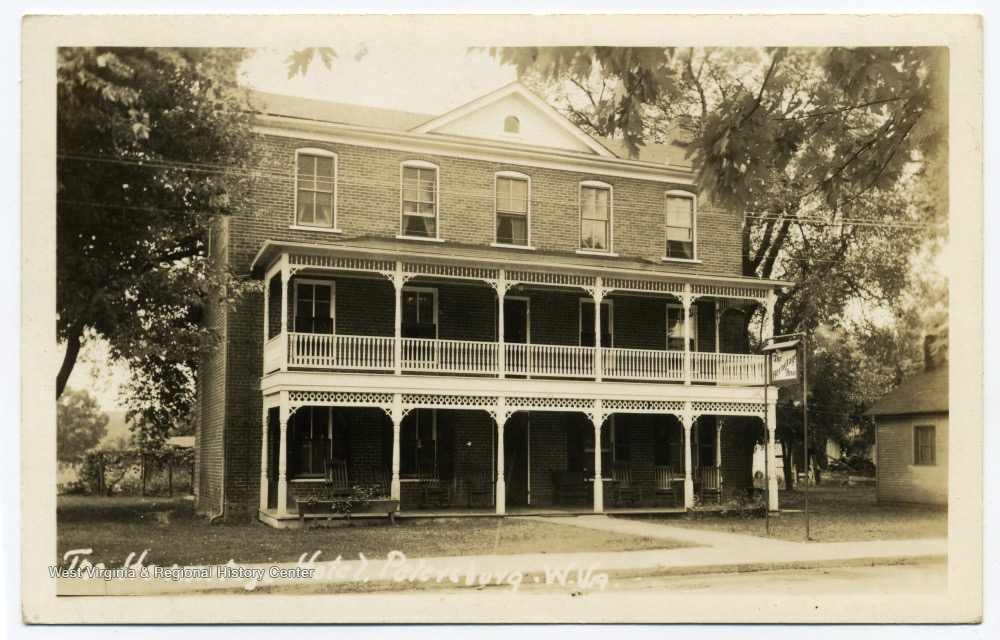

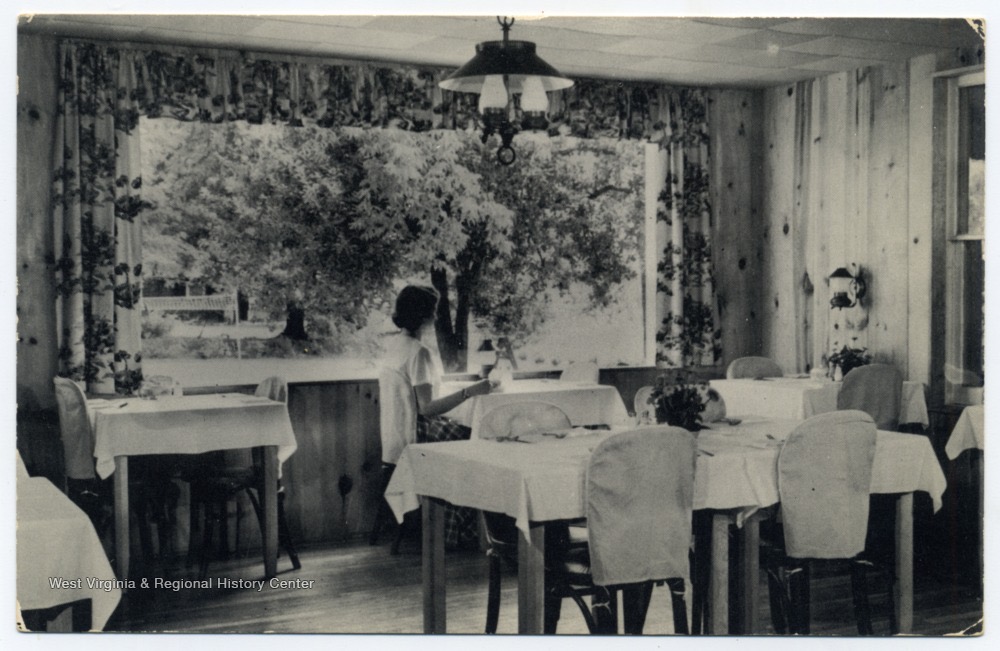
Around the turn of the century in the 1900s, Mr. and Mrs. John Ed Taylor came to Petersburg to run the Riverside Tannery. Finding the hotel too small to house his family of nine daughters and businessmen who required lodging, he added extensively to the building. He filled in the space between the original house and the rooms above it.
In 1904, during the Taylor regime, the “Taylor House and/or The Oriental” had a significant name change. Dr. Roy B. McCuskey arrived at the “Taylor House” by horse-drawn carriage. During that visit, he and I.B. Wilson, using the cover of night, found a can of paint and a brush in an outbuilding. They reworded the old sign with what they thought was a more “High Falootin” name, The Hermitage, which is still retained today.
During World War I, G.P. Schaeffer operated the hotel and added a dining establishment. Schaeffer was responsible for additions to the first floor, adding the third floor, and putting in the first central heating and plumbing in the hotel. These additions closed the gap between the original home and the kitchen, which had been in a separate building.
Early restaurant menus included locally grown fruits and vegetables as well as fish, fowl, and game from the area. At one time, the ringing of the dinner bell at the front entrance of the hotel announced the hour. Ministers on Sunday would complete their sermons when the bell rang.
Mrs. Russell Quinn, ninth daughter of John Ed Taylor, handled the Hermitage operations for a few years, until it was taken over by her nephew, Donald J. Baker. Keys were distributed to travelers, but any key would fit any door.
This was around the time of World War II and the ways of traveling were changing as did the travelers themselves. The Hermitage bowed to demand and was master keyed, thus eliminating the communal atmosphere.
In 1942, Mr. and Mrs. W.J. Cowherd bought the hotel from Mr. Baker. During their ownership, the Hermitage relinquished its dining facilities that had been in operation since 1881, to the West Virginia Book & Craft Shop in the early 1970s. The cook needed to know how much wood and what kind of wood to add to the stove to gain the right amount of heat for preparing different foods. This takes a lot of time and effort and unfortunately a huge learning curve, and to top it off, there were no built-in thermometers back then. The restaurant space was then used to promote West Virginia’s finest handmade crafts, artwork, and books.
In October of 1965, a new and modern motor lodge was added behind the main building and several rooms in the original building were converted to apartments. In addition to these add-ons, guests were also offered five-channel cable television. Correspondence at the time quotes Mrs. Cowherd saying the change was made “on an installation the equal to any in the metropolitan areas. Along with that, over the same cable, we have been able to secure FM music for the store”.
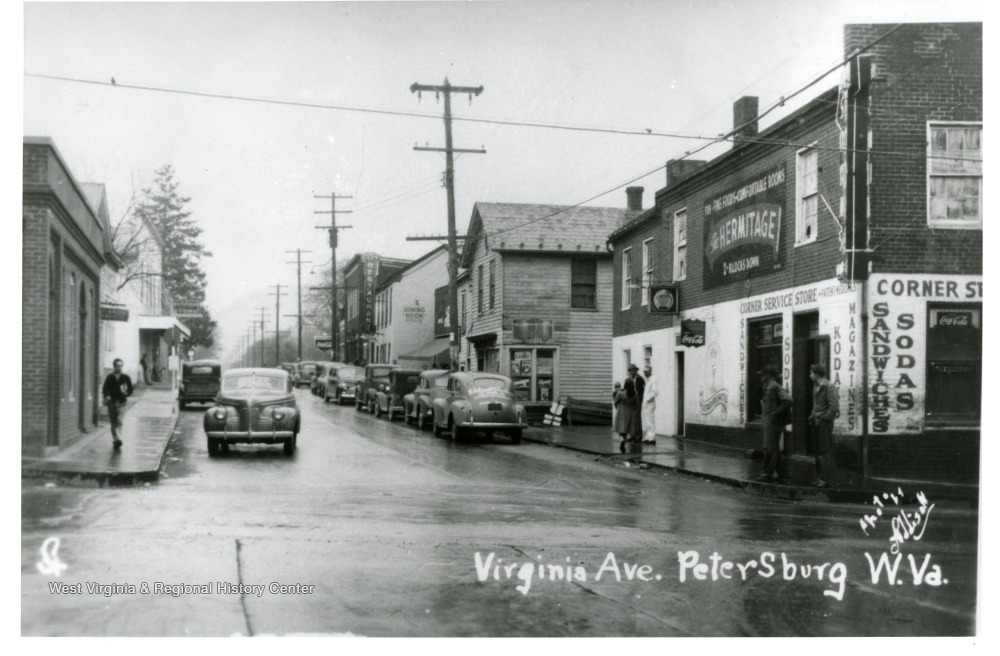
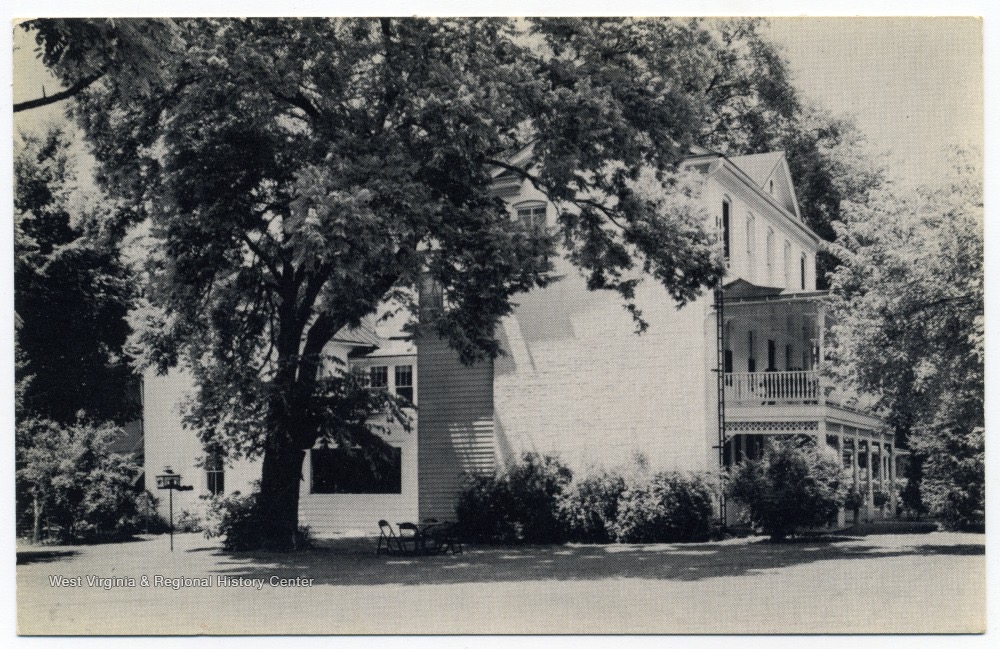
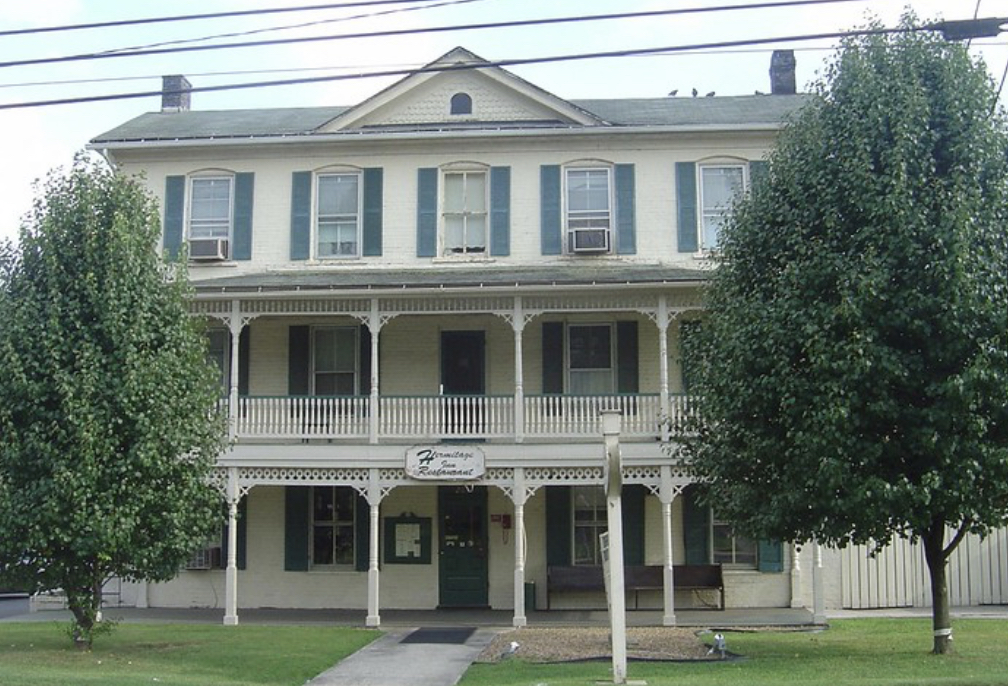
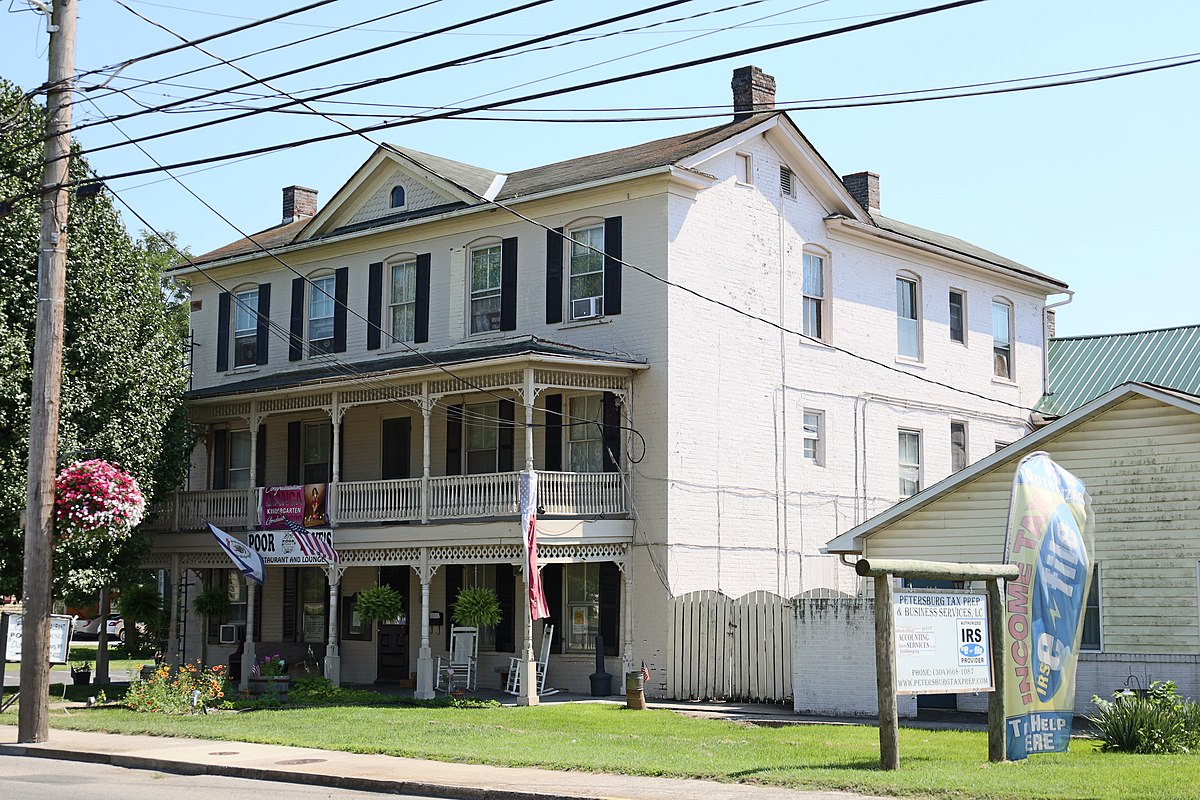
Mr. and Mrs. James A. Roby took over operation of the motel and craft shop on October 1, 1980. A pool was opened in 1981. The construction of 12 units were added to the motor lodge in 1984. The Inn became all electric when baseboard heat replaced the boiler and steam radiators in November of 1985. The very day that the electric was switched on, was the day that ground water from the flood of ‘85 finished off the old boiler. In the spring of 1994, the second of two buildings, originally used by salesmen to display their samples, were torn down. Four additional units were constructed in its place.
After owning The Hermitage for ten years, in the spring of 1990 renovations were made to open the dining facility as “The Highlander” which would later become “Brooke’s Landing” and then “Poor Dave’s”. The kitchen was modernized, and restrooms were added. The “Sunroom” was built adjacent to the original front dining room. Central air conditioning, the first in the Inn, was installed. A banquet room was added during the winter of 1998. The area where the Inn stands used to be the hotel garden and behind it was a livery stable.
In 2013, the Hermitage Inn Motel was purchased by Joe and Kim Mallow.
📞 304-530-1841
203 Virginia Ave, Petersburg, West Virginia 26847
